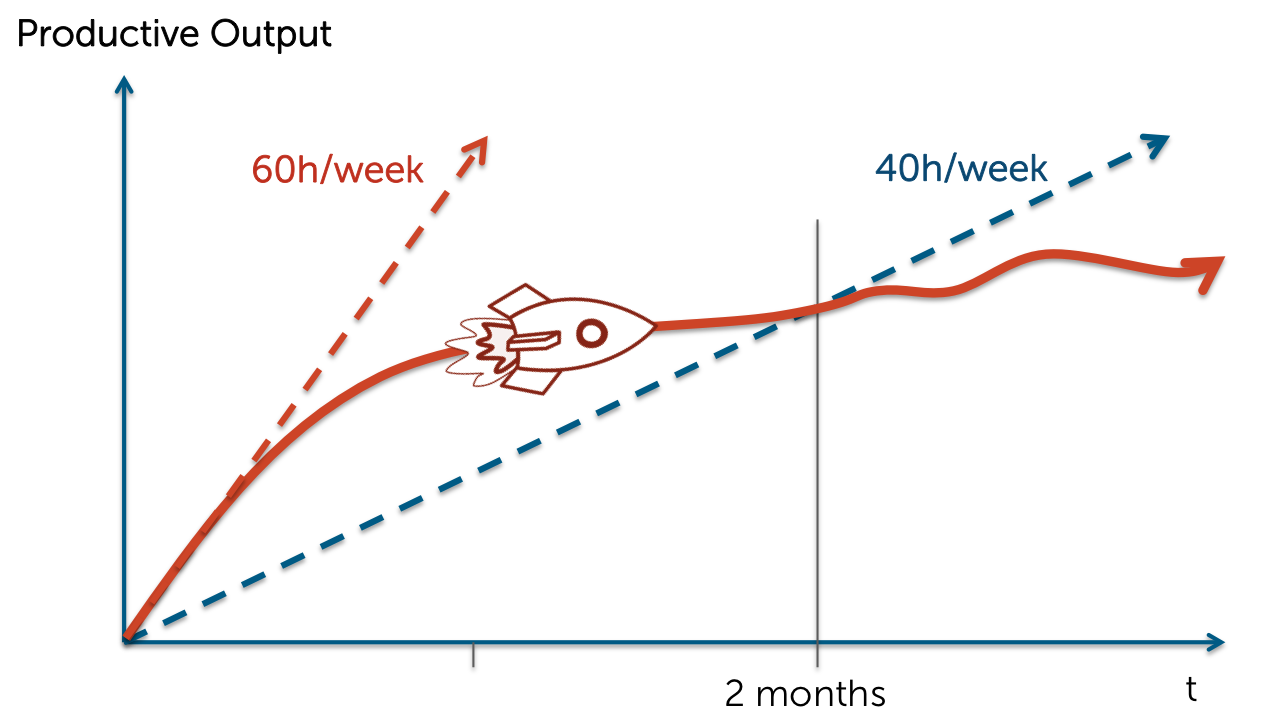Sleep-deprived? Cheers.
I pride myself of being able to work long hours, day after day; to be really good at managing many tasks; and I’ve had my fair share of short nights. Here is why I probably performed like a drunk, joint-smoking, hour-puncher. It made me think about our mid-life chances – and draw 3 visualizations.
Lack of Sleep – in a Jack Daniel’s Bottle
(c) Lars Diener-Kimmich
1. SLEEP DEPRIVATION
from Travis Bradberry, “Sleep Deprivation is Killing your Career”
«The negative effects of sleep deprivation are so great that people who are drunk outperform those lacking sleep.»
«When you sleep your brain removes toxic proteins from its neurons that are by-products of neural activity when you’re awake. Unfortunately, your brain can remove them adequately only while you’re asleep. So when you don’t get enough sleep, the toxic proteins remain in your brain cells, wreaking havoc by impairing your ability to think—something no amount of caffeine can fix.
Skipping sleep impairs your brain function across the board. It slows your ability to process information and problem solve, kills your creativity, and catapults your stress levels and emotional reactivity.»
I remember those situations at work, in the morning, bragging with how little sleep we are powering through the week, and the tough calls and big decisions we were dealing with.
I wouldn’t find it cool at all, if my colleagues (or I) just had 2 beers for breakfast – and were about to make these decisions.
If we replaced “alcohol problem” with “sleeping problem”, sleep deprivation gets a whole different attention.
2. MULTITASKING
from Daniel J Levitin, “Why the modern world is bad for your brain”
«In an era of email, text messages, Facebook and Twitter, we’re all required to do several things at once. But this constant multitasking is taking its toll.»
«The cognitive losses from multitasking are even greater than thecognitive losses from pot‑smoking.»
Marihuana Joint, illustration by Lars Diener-Kimmich
original picture (c) celdadcarin/123rf.com
«Multitasking creates a dopamine-addiction feedback loop, effectively rewarding the brain for losing focus and for constantly searching for external stimulation. To make matters worse, the prefrontal cortex has a novelty bias, meaning that its attention can be easily hijacked by something new – the proverbial shiny objects we use to entice infants, puppies, and kittens.
The irony here for those of us who are trying to focus amid competing activities is clear: the very brain region we need to rely on for staying on task is easily distracted. We answer the phone, look up something on the internet, check our email, send an SMS, and each of these things tweaks the novelty- seeking, reward-seeking centres of the brain, causing a burst of endogenous opioids (no wonder it feels so good!), all to the detriment of our staying on task.
It is the ultimate empty-caloried brain candy. Instead of reaping the big rewards that come from sustained, focused effort, we instead reap empty rewards from completing a thousand little sugar-coated tasks.»
I’ve experienced this myself, but – I may have been able to train myself out of too much multitasking-blurring with agile principles like Backlog Management and Timeboxing (both featured on this blog).
But I wonder what challenges our kids face, as our generation really doesn’t have any experience to help and guide them through this era of constant distraction and temptations to “not stick to one task at a time”.
3. SIXTY-HOUR-WEEKS
from Eric Barker, “The 5 Daily Rituals That Will Make You Happy”
«By working 60 hour weeks you can get a lot done.
But when you work that hard for too long, your productivity drops off.»
(c) illustration by Lars Diener-Kimmich
«After 2 months of 60 hours a week you’ll actually accomplish less than if you’d only been working 40 hours a week.»
I wanted to share these “thought triggers” with you, as they fit my quest for high performance through a combination of hard word and playful-ness.
When I read things like these, I collect them through Twitter and post only these as My Twitter Trail (on www.ludensfaber.com).
So, swing by for thought triggers on my favorite topics – for example to find the link to “a study that shows that a daily 15 minute reflection leads to a significant increase in performance”, and some more.



